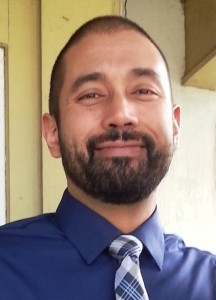 Today’s “aha” moment is brought to you by Carlos Bovell, a frequent contributor to this blog (for his last post go here and work backwards). Bovell is a graduate of Westminster Theological Seminary and The Institute for Christian Studies, Toronto. He is the author of Inerrancy and the Spiritual Formation of Younger Evangelicals (2007), By Good and Necessary Consequence: A Preliminary Genealogy of Biblical Foundationalism (2009), an edited volume, Interdisciplinary Perspectives on the Authority of Scripture (2011), and Rehabilitating Inerrancy in a Culture of Fear (2012).
Today’s “aha” moment is brought to you by Carlos Bovell, a frequent contributor to this blog (for his last post go here and work backwards). Bovell is a graduate of Westminster Theological Seminary and The Institute for Christian Studies, Toronto. He is the author of Inerrancy and the Spiritual Formation of Younger Evangelicals (2007), By Good and Necessary Consequence: A Preliminary Genealogy of Biblical Foundationalism (2009), an edited volume, Interdisciplinary Perspectives on the Authority of Scripture (2011), and Rehabilitating Inerrancy in a Culture of Fear (2012).
********
I can very definitely remember that “aha” feeling in my spiritual journey. But truth be told, I doubt it was really just a moment, or if it was, it had to be a moment that was years in the making.
Before attending Westminster Theological Seminary I audited courses in Old Testament studies at Philadelphia College of Bible (later Philadelphia Biblical University, and now Cairn University). I eventually graduated with a math degree at The College of New Jersey, but I had had a life-changing religious experience before enrolling here, which is what prompted my sitting in on courses at PCB. I enrolled as an M.Div. student at Liberty Baptist Theological Seminary. It was as a result of studying at PCB and Liberty that I had learned a really valuable lesson.
(Side note: My spiritual counselors at both PCB and Liberty insisted I disregard my religious experience—even though it changed my life—because God doesn’t do those kinds of things anymore. He rather makes provision for us through holy scripture.)
While at PCB my OT professor, Brian Toews, was teaching us about the “canonical approach” to scripture of late Yale professor Brevard Childs. To help us understand how it would look when done by evangelicals, my professor had us work through numerous readings by John Sailhamer–a well known inerrantist OT scholar who had taught briefly at PCB but moved on to Western Seminary by the time I took classes there.
A quote from Sailhamer’s Introduction to Old Testament Theology: A Canonical Approach illustrated for me just how much preliminary work a student of the Bible is actually doing, philosophically, before thinking about how and whether the Bible is inerrant:
Thus the world that one stands before as a reader is never more than a representation of the “real world.” In the case of the Bible, the text is a true representation and an accurate representation. However, no matter how true or how accurate the text is, the accuracy of the Scriptures should not be allowed to obscure the fact that the text is, in fact, a representation of those actual events.
Now I should make clear that “what the Bible represents it always represents accurately” was not something I had any interest in criticizing at the time. I had wholeheartedly believed that. It was just that there was something about the way Sailhamer mentioned it here that seemed forced, contrived. What is he so worried about here?
Then, after spending a semester studying at Liberty Baptist Theological Seminary, I read a book by Liberty faculty that talked about the nature of Christian scholarship. The book was a compilation of essays and bore the title, Opening the American Mind: The Integration of Biblical Truth in the Curriculum of the University.
Each chapter gives an overview of a specific university discipline and was written by a professor who was active in that specific field so that the mathematics chapter was written by a mathematics professor, the economics chapter by an economics professor, the arts chapter by a music professor, and the biblical studies chapter by . . . a philosophy professor!
What’s wrong with this picture? Why is it that for every other field a practitioner of that field can explain how it relates to faith, but when it comes to biblical studies, a philosopher (none other than Norman Geisler) has to be called in to tell students in biblical studies what biblical studies must ultimately look like?
Both the Sailhamer assignments and the Liberty book got me thinking more intently about evangelical spirituality—particularly how it is shaped by evangelical philosophy—and cumulatively contributed to an “aha” moment for me: evangelicals, at least some, use philosophy to shield them from the “threats” of biblical studies.
Why the need to emphasize what inerrancy “requires” from biblical studies—ahead of time—before actually doing any biblical studies? I found this to be a very troubling question. Why are inerrantists going to settle matters for students before they gained some familiarity with the discipline of biblical studies?
It seems that the reason is to protect students from drawing “dangerous” conclusions. Even Sailhamer, a biblical scholar, felt the need to put on his philosopher’s hat while he did his biblical studies.
This raised a larger question for me: Where does biblical studies begin and inerrantist philosophy end? Is inerrantist philosophy driving the evangelical engine?
As much as I did not want to, I had to answer this question with a “yes.” An inerrantist historical Jesus scholar, for example, is not able to say that the early church put words into Jesus’ mouth in various portions of the Gospels or that a number of events recounted in the Gospels never really took place, being made up by a later generation of well-meaning disciples. Evangelical philosophy will already have decided these matters ahead of time. Thus evangelical, historical Jesus scholarship would have no choice but go through the motions of “discovering” that the Gospels are actually “true.” And this pattern carries over to other aspects of biblical studies.
I sensed a clear and widespread pattern among evangelical writers. The Liberty book I read thought that it would be best for an inerrantist philosopher to explain to students what biblical studies is and what it cannot find. Sailhamer wanted students and others reading him to know upfront that their researches in biblical studies would never come into conflict with inerrantist philosophy.
What I came to understand is that when inerrantist, philosophical pre-commitments of this kind are at work, the kind of scholarship needed to be done most by evangelicals would never get done from inside of evangelicalism.












